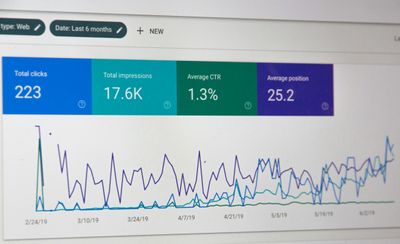One of the best things about starting a small business in Australia is that almost anyone can do it. Over the years and decades, governments and private industries have developed pathways to provide access to start-up funding.
Don’t misunderstand: starting a business is hard work, and you won’t automatically have access to endless money.
But with a well-formed business plan, a brilliant business name, and an understanding of funding options, you can look for the right support to start or scale your small business.
Debt vs. Equity funding: Two ways to fund a small business
Debt funding
Debt funding is like taking out a loan. You borrow money from a lender (usually a bank or financial institution) and agree to repay it over time, plus interest.
Equity funding
Equity funding involves selling a portion of your business to investors in exchange for their financial support. Investors share the start-up costs, but they also share your success.
Each has advantages and disadvantages, so we strongly recommend speaking to a qualified financial advisor to understand which (if any) meets your needs.
For example, entrepreneurs might take on debt to finance short-term expenses like inventory or working capital if they can afford the repayments. On the other hand, equity financing can help small businesses grow without taking on debt, although the trade-off is giving up some control to investors.
| ### Debt vs equity financing | ||
| Debt financing | Equity financing | |
| What is it? | Borrowing money from a lender | Selling shares to an investor |
| Who provides it? | Banks, credit unions and other lenders | Investors, such as venture capitalists and angel investors |
| What are the terms? | Interest payments on a repayment schedule, occasionally collateral held against the loan | Ownership stake, dividends |
| Who controls the business? | You | You and the investor(s), based on their stake and the terms |
| When can it be useful? | For short-term expenses, working capital | For long-term growth |
**Different ways to fund a new or growing business **
From the cost of registering a business name to buying equipment to developing products, advertising, hiring, renting property and investing in equipment, building a business requires capital. That’s unavoidable.
How much and in what form is highly contextual, as is where the money comes from.
Here are a few common ways business owners access funding.
Self-funding
Also called “bootstrapping”, digging into personal savings is the most common source of funding for small businesses. A little over 40% of Australian start-up founders claim they have never taken on debt, and historical Federal Government data suggests 72% of entrepreneurs use personal savings as a major source of start-up funding.
Self-funding is technically equity funding because you’re staking your personal wealth against the business’s success.
Business loans
Credit cards, term loans and lines of credit cumulatively account for almost all of Australia’s small business debt funding.
The amount borrowed will vary widely. Some sole traders might use a credit card for incidental costs like business name registration and website hosting, while entrepreneurs starting a company might seek term loans to invest in equipment, hire employees or purchase inventory.
Loans attract interest. Interest rates are high. So, although small business owners historically prefer debt over equity because it means keeping control of the business, you should seek financial advice to ensure you can meet repayments.
Family and friends
Some estimates suggest that 1 in 4 Australian founders tapped their personal network for start-up funding.
Unfortunately, the data does not reveal whether this is debt taken in good faith, an interest-bearing loan between friends, equity investments from business-minded pals or something else.
Family and friends can be a great support. But it’s worth weighing up this option carefully to ensure it won’t affect your relationships.
Grants
Applying for a small business grant can be a great way to access funding without necessarily needing to repay it.
Many government programs award grants for innovative ideas, underrepresented business owners, social causes or regional initiatives. Private firms, research institutions, industry bodies and not-for-profits also award grants, so it’s worth searching wide and consulting people in your industry.
The grant application process can be competitive, and grants are often limited in amount. Some also carry conditions, such as equity stakes, reporting requirements or performance milestones.
Seed funding
Venture capital (VC) firms and angel investors are almost always on the lookout for the next ‘unicorn’ investment.
- Angel investors are wealthy individuals who invest in small businesses with high growth potential
- VC firms are professional investors who typically provide more funding than angel investors but also expect a higher return
One advantage of seeking equity funding from angels and VCs is the potential to gain a mentor at the same time.
Crowdfunding
There are various ways to crowdfund a new idea, including rewards-based, equity-based and donation-based crowdfunding. In every case, the business owner is asking a large number of people for a small amount of money.
Platforms like Kickstarter, GoFundMe and Indiegogo have made crowdfunding more accessible and mainstream. These platforms are not just for quirky ideas. They can help raise the money to launch a new business or release a new product without relinquishing control or taking on debt.
The best place to start is at the beginning
We recommend revisiting your business plan if you’re unsure which funding structure might suit your business. Between the mission, vision, budget and long-term growth goals, you should start to understand how your business should take shape.
Make sure to conduct a business name search and register your business name before taking steps to secure funding. Whether approaching angel investors or applying for a bank loan, having a registered business name and cohesive business plan shows you’re serious.




